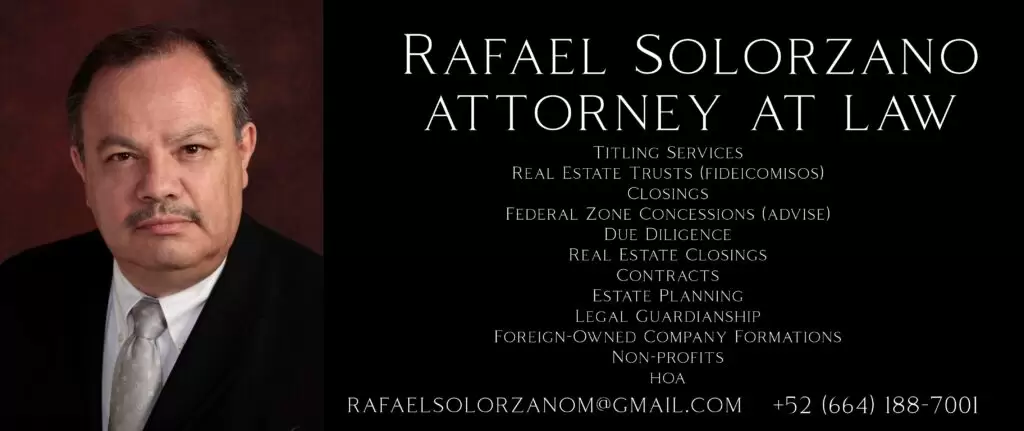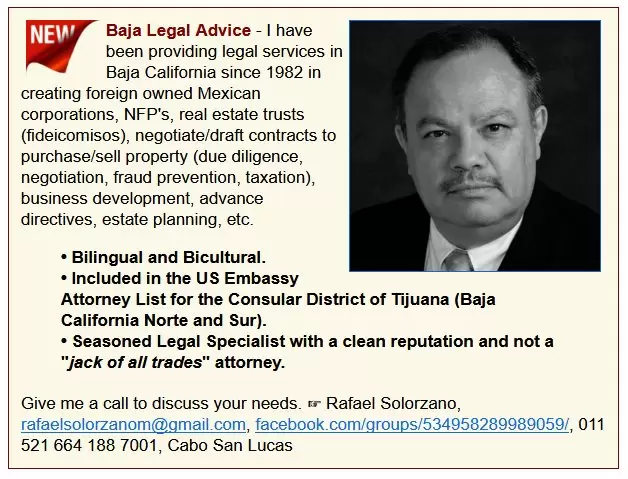What is a Fideicomiso?

Real Estate Acquisition by Foreigners in Mexico’s Forbidden Zones
Foreigners have different options to own property in México but I want to focus on my preferred choices:
- Through a Mexican Bank Trust (Fideicomiso).
- By incorporating a Mexican Company to be the owner of the assets and be able to lease them to others.
Caveat emptor!
Yes, there are many other ways to purchase property, but keep in mind that buying and owning property aren’t synonymous, they are 2 different acts, at least in Mexico, see, many buy the property, and eventually, the purchase does not result in the transfer of ownership to the buyer.
What is a Fideicomiso?
A Mexican Trust or fideicomiso is a trust agreement (and no, it is not a land lease, there is no such thing) that is required for a foreigner to acquire property within the restricted zones of Mexico which consists of a strip of land 100 kilometers from the US border and 50 kilometers along Mexico’s coastline.
The Mexican constitution prohibits foreigners from holding direct title to land within the restricted zones.
Amendments to the law in 1943 allowed exceptions for this prohibition by allowing foreigners to acquire direct title to the property for commercial purposes but still restricted direct ownership for residential purposes.
The Mexican bank trust system was designed and encoded into law allowing foreigners to purchase restricted zone property for residential purposes in a manner consistent with constitutional provisions and as a consequence of armed invasions (War) by the United States where the country lost over 60% of its territory.
What does it do?
A fideicomiso allows foreigners to use and enjoy property within the restricted zone by placing it into a real estate trust which is recorded under a Mexican trustee’s name, (Per Law, only Mexican Banks can be Trustees).
The Mexican trustee is the Mexican bank’s trust department. The Mexican Bank’s trust department is designated as the holder of record to comply with the constitutional provisions prohibiting ownership by foreigners.
Trustees are paid an initial fee for recording the property under their name and are subsequently paid an annual trust maintenance fee.
The trustee is prohibited by the trust agreement and by Mexican law from transferring the property or the beneficiary rights to the property without the written permission of the beneficiary.
Is it safe?
The Mexican bank trust is the safest method to own real estate within the Constitutionally Restricted Zone. A bank trust must be established with a Mexican bank. The property you hold in a bank trust is yours to improve, build, encumber, sell, leave in the state it is, etc. You’ll have the same rights you have in a US bank trust as well as the rest of the world.
Can you sell it later?
When you decide to sell your home, there is a high probability that other foreigners will be interested in purchasing your trust rights. If you decide to sell, you must forward a letter of instructions to the bank to give notice about a name change in the bank trust, and the new buyer will apply with the federal government in México City for the change of name in the trust and also the buyer will name the new beneficiaries of the trust. Your real estate broker should assist in the application to the Foreign Ministry.
If you transfer your trust beneficiary rights to a Mexican national, the latter has the option to take title under his name in the trust, remove the property from the trust or remove the property from the trust and take the title deed (Mexican ownership documents). Sometimes, Mexicans will opt to pay the annual trust fee and stay within the master trust, especially if the buyer buys from another foreigner. It is not advisable, as you don’t own the land beneath you.
What are the costs?
Approximate closing costs for Residential Purposes * (Quantities in US currency)
1. Trustee fees: $1,000 to create a trust and annual handling, paid in advance, usually $700, to $1,000
2. Permit and registration for foreign investments (Permit and Registration from the SRE): $1,600, which could have changed recently.
3. Public Registry: Varies by location. Can vary from approximately .03% to 1.15% of the value of property to be registered in the trust. In addition, some locations charge for the registration of the “Lien” from .0125% to .045% of the loan amount.
4. Appraisal: Typically between $1,000 and $1,500.
5. Notario Publico: Varies by the value of the sales contract.
6. City Land Acquisition Tax: Equal to 2% of the purchase price.
Please check with your local realtor/attorney for more exact costs in your particular situation. Costs vary depending on the transactional/appraisal value of the property.
For an additional fee-based consultation contact the author, Lic. Rafael Solorzano


